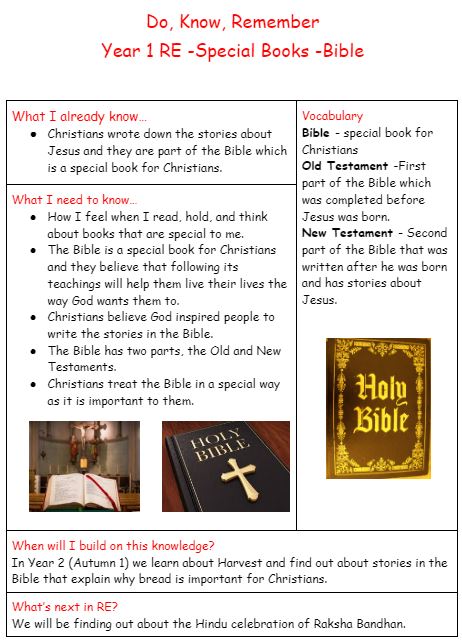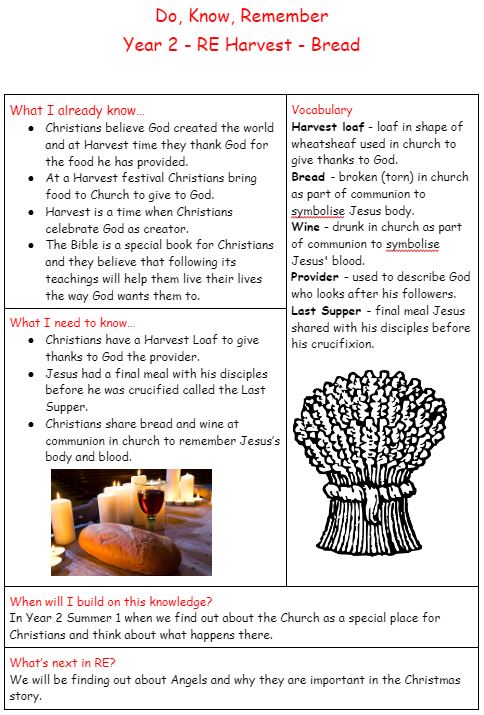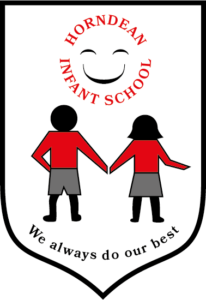Religious Education (R.E.)
Our Intent, Implementation and Impact statement for Science
Intent
At Horndean Infant School, our intent is to deliver a high quality Religious Education curriculum which aims to fulfill the requirements of both the Early Years Foundation Stage and Living Difference IV, the Agreed Syllabus for RE for Hampshire.
We aim to introduce children to what a religious way of looking at, and existing in, the world may offer in leading one’s life, individually and collectively. This will be done by providing a broad, balanced, ambitious and inclusive curriculum whilst also ensuring the progressive development of religious concepts, knowledge and skills.
It is our intent that our children will become accepting, mindful and inquisitive learners. We see the teaching of RE as essential to enable children to understand the beliefs of others and make connections with their own experiences and values.
We aim to find exciting and interesting ways to bring the experience of the religious concepts alive, to empower children to engage intellectually with material that is new and to discern with others what is valuable with regard to living a religious life or one informed by a non religious or other perspective.
Implementation
The RE Curriculum focuses on the religious traditions of Christianity and Hinduism and is planned and taught through specific RE lessons planned as six half termly cycles of enquiry. These are delivered as blocked units for each year group then further developed through Discovery Time and objective led planning in Year F and Growing Learners in Years 1 and 2.
RE is taught through a spiral curriculum approach that brings about a coherent and integrated approach to RE that deepens and broadens over time as concepts are well sequenced, connected and revisited.
There are key “Golden Thread Concepts” which are introduced with an explicit focus then flow through the other RE topics to enable continuity throughout the key stage. These are Special in Year F, Love and Special in Year 1, and Community and Belonging in Year 2. As part of the spiral curriculum they enable a deepening and broadening of children’s experience of Religious Education over time.
The RE Long Term Overview sets out the organization of the Religious Education Curriculum with clear reference to the concepts that are revisited such as Harvest, Diwali, Specialness as well as the Golden Thread Concepts so its spiral nature is explicit.
Each unit of work uses a cycle of inquiry using the skills of:
- Communicate – sharing ideas about a new concept
- Apply – developing awareness of the experience of others
- Inquire – engaging & exploring new information about the concept
- Contextualise – looking at real life examples
- Evaluate – Thinking about how the material might matter in their own life.
Questioning has a key focus as children’s questions enable them to explore their own and others experiences, Teacher’s questions encourage children to attend in different ways, engage intellectually, think, speak, act and discern what is of value to them and overarching enquiry questions guide units of study.
Children are given “pondering time” to help develop the qualities of attentiveness, interestedness, curiosity, as well as independence so children can engage, and think about the matters teachers bring to them. This time to work on and explore topics, questions or themes of their choice, at their own speed alone or with others who share the interest can be through Objective Led Planning, Discovery Time and through Growing Learners in Key Stage One.
The RE Curriculum is planned taking into account the End of Year Expectations (EYEs) which outline what children are expected to have encountered in each year and describe what children will have experienced and as a consequence be able to do at the end of the unit.
Learning will be supported through the use of knowledge organizers (DKRs) that provide children with scaffolding that supports them in retaining new facts and vocabulary in their long term memory. Knowledge organizers are also used to support pre-teaching.
The teaching of RE is enriched by the use of artifacts, music, art, storytelling, role play, food tasting, visits and visiting members of the local faith community.
Impact
RE assessment is ongoing throughout the topics in order to inform teachers in their differentiation of lesson activities. Summative assessment is used at the end of each topic to assess whether the learning objectives are met and to inform future planning. They identify those children who are ready to explore the topic in greater depth and those who would benefit from pre teaching to support their understanding of the next topic including children with SEN. This ensures all children can access the RE Curriculum.
Together with the End of Year Expectations (EYES)these assessments form the basis of what is reported to parents.
In the Early Years, evidence is recorded as observations on Tapestry. This allows for judgements to be made regarding whether a child has achieved the Early Learning Goal at the end of Year F, in this case Understanding the World: People, Culture and Communities.
The summative assessments inform teachers and the RE leader of the knowledge or skills that need to be further enhanced and progress can be tracked throughout school. The RE Subject Lead is then able to use the evidence collected alongside the assessment information to monitor and track the implementation of the subject’s curriculum to ensure that our intentions are achieved. The impact of the RE curriculum is evaluated through regular monitoring, pupil voice discussions and annual reviews. The purpose of this is to highlight the impact of the implemented curriculum, its strengths and areas for further development.
The Impact of our Religious Education will be that:
- Children develop an understanding and appreciation of what people believe and what difference this makes to how they live, so that they are able to gain the knowledge, understanding and skills needed to handle questions raised by religion and belief, making connections and developing their own beliefs and values.
- Children will feel valued as individuals and that their beliefs are valued and celebrated.
- Children will be respectful and open minded when exploring the faiths and beliefs of others in our diverse world.
- Children will feel safe to learn new things and share their beliefs with others in an accepting environment
- Children leave the school with a sense of belonging both to their community and the wider world.
Please note, parents and carers have the right to withdraw their child from all or part of Religious Studies.


